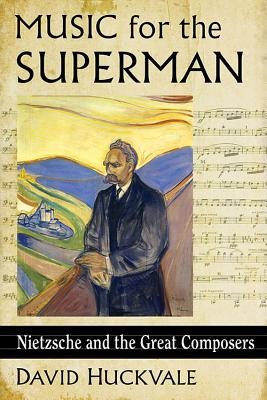
- We will send in 10–14 business days.
- Author: David Huckvale
- Publisher: McFarland and Company, Inc.
- ISBN-10: 1476663408
- ISBN-13: 9781476663401
- Format: 15 x 22.9 x 1.8 cm, softcover
- Language: English
- SAVE -10% with code: EXTRA
Reviews
Description
Friedrich Nietzsche regarded himself as the most musical philosopher--he played the piano, wrote his own compositions and espoused a philosophy encouraging all to dance for joy. Central to his life and his ideas were the music and personality of Richard Wagner, whom he both loved and loathed at different times of his life. Nietzsche had considerable influence on composers, many of whom employed Wagnerian sonorities to set his words and respond to his ideas. This book explores Nietzsche's relationship with Wagner, the influence of his writings on the music of Strauss, Mahler, Delius, Scriabin, Busoni and others, his place in Thomas Mann's critique of German Romantic music in the novel Doctor Faustus and his impact on 20th-century popular music.
EXTRA 10 % discount with code: EXTRA
The promotion ends in 20d.13:18:59
The discount code is valid when purchasing from 10 €. Discounts do not stack.
- Author: David Huckvale
- Publisher: McFarland and Company, Inc.
- ISBN-10: 1476663408
- ISBN-13: 9781476663401
- Format: 15 x 22.9 x 1.8 cm, softcover
- Language: English English
Friedrich Nietzsche regarded himself as the most musical philosopher--he played the piano, wrote his own compositions and espoused a philosophy encouraging all to dance for joy. Central to his life and his ideas were the music and personality of Richard Wagner, whom he both loved and loathed at different times of his life. Nietzsche had considerable influence on composers, many of whom employed Wagnerian sonorities to set his words and respond to his ideas. This book explores Nietzsche's relationship with Wagner, the influence of his writings on the music of Strauss, Mahler, Delius, Scriabin, Busoni and others, his place in Thomas Mann's critique of German Romantic music in the novel Doctor Faustus and his impact on 20th-century popular music.


Reviews